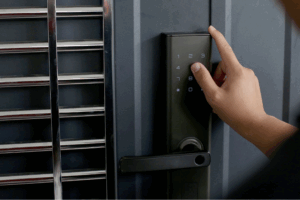Locksmith services are essential for ensuring the safety and security of your home, car, and business. Unfortunately, the rise of locksmith scams has made it increasingly difficult for consumers to find trustworthy professionals. At Major Island Locksmith, we understand the importance of protecting your interests. In this blog, we’ll discuss common locksmith scams, how to recognize them, and tips to ensure you avoid becoming a victim.
Understanding Locksmith Scams
Locksmith scams often involve unlicensed or unqualified individuals posing as professionals to take advantage of unsuspecting customers. These scams can result in overcharging, poor workmanship, or even property damage. It’s crucial to be aware of the different tactics scammers use so you can protect yourself.
Common Types of Locksmith Scams
Low-Price Advertising: Scammers often advertise incredibly low rates, only to charge significantly more once the job is completed. They may lure customers in with a seemingly unbeatable price but inflate the final bill with hidden fees and unnecessary services.
Unlicensed Technicians: Many scammers lack the proper licensing and certifications. They may claim to be licensed professionals, but their work can compromise your security and safety.
Fake Local Listings: Scammers may set up fake local addresses or use phone numbers that seem local to make their services appear legitimate. When you call, you may be directed to a call center instead of an actual local locksmith.
High-Pressure Tactics: Once they arrive at your location, some scammers will pressure you into making quick decisions, often claiming that immediate action is required. This tactic can lead you to make hasty decisions that may not be in your best interest.
No Written Estimates: Scammers often refuse to provide written estimates before starting work. Without a written quote, you’re at risk of being charged much more than expected.
Signs of a Locksmith Scam
Recognizing the signs of a locksmith scam can help you avoid falling victim. Here are some red flags to watch for:
Unprofessional Appearance: Legitimate locksmiths typically arrive in branded vehicles and wear uniforms. If a technician arrives in an unmarked vehicle or dressed casually, be cautious.
No Identification: A professional locksmith should be able to provide identification and proof of licensing. If they cannot, consider hiring someone else.
Ambiguous Pricing: If the locksmith refuses to provide a clear estimate for their services, it’s a sign they might be trying to deceive you.
Poor Reviews: Check online reviews and ratings before hiring a locksmith. A lack of positive feedback or numerous complaints can indicate a scammer.
How to Protect Yourself from Locksmith Scams
To avoid becoming a victim of locksmith scams, consider the following tips:
1. Do Your Research
Before hiring a locksmith, research local companies. Look for reviews and ratings on websites like Google, Yelp, and Angie’s List. A trustworthy locksmith should have a solid reputation and numerous positive reviews from satisfied customers.
2. Ask for Recommendations
Seek recommendations from friends, family, or neighbors. If someone you trust has had a good experience with a locksmith, it’s a reliable sign that the service is legitimate.
3. Verify Credentials
Always verify the locksmith’s credentials before hiring them. Ask for their license number and proof of insurance. You can also check with your local licensing authority to ensure they are properly licensed.
4. Get a Written Estimate
Before any work begins, request a written estimate outlining the costs involved. This document should detail labor, parts, and any additional fees. Having a written estimate protects you from unexpected charges.
5. Trust Your Instincts
If something feels off about a locksmith, trust your instincts. Don’t hesitate to walk away if the technician seems unprofessional, refuses to provide identification, or tries to pressure you into making quick decisions.
6. Keep Contact Information Handy
Always keep the contact information of a reputable locksmith, like Major Island Locksmith, readily available. This way, you can quickly call a trusted professional if you find yourself in a lockout situation.
What to Do If You Fall Victim to a Locksmith Scam
If you do become a victim of a locksmith scam, there are steps you can take:
Document Everything: Keep records of your interactions, including receipts, estimates, and any correspondence with the locksmith.
Report the Incident: File a complaint with the Better Business Bureau (BBB) and your local consumer protection agency. This helps warn others about the scam.
Contact Law Enforcement: If you feel threatened or believe your safety is at risk, contact local law enforcement immediately.
Leave a Review: Share your experience online to warn others about the scam. Your review can help others avoid the same fate.
Key Points to Remember
- Research local locksmiths before hiring.
- Ask for recommendations from friends and family.
- Verify credentials and ask for identification.
- Request a written estimate before any work begins.
- Trust your instincts and don’t hesitate to walk away.
By following these tips, you can protect yourself from locksmith scams and ensure you receive quality service when you need it most.
Conclusion
Locksmith scams can be frightening and costly, but with the right knowledge and precautions, you can avoid becoming a victim. Remember to always do your research, verify credentials, and trust your instincts when hiring a locksmith. At Major Island Locksmith, we are committed to providing trustworthy and reliable locksmith services to our community.
For more information or to request our services, feel free to reach out to us at info@majorislandlocksmith.com or call us at 516-779-6698. Your safety and security are our top priorities!




